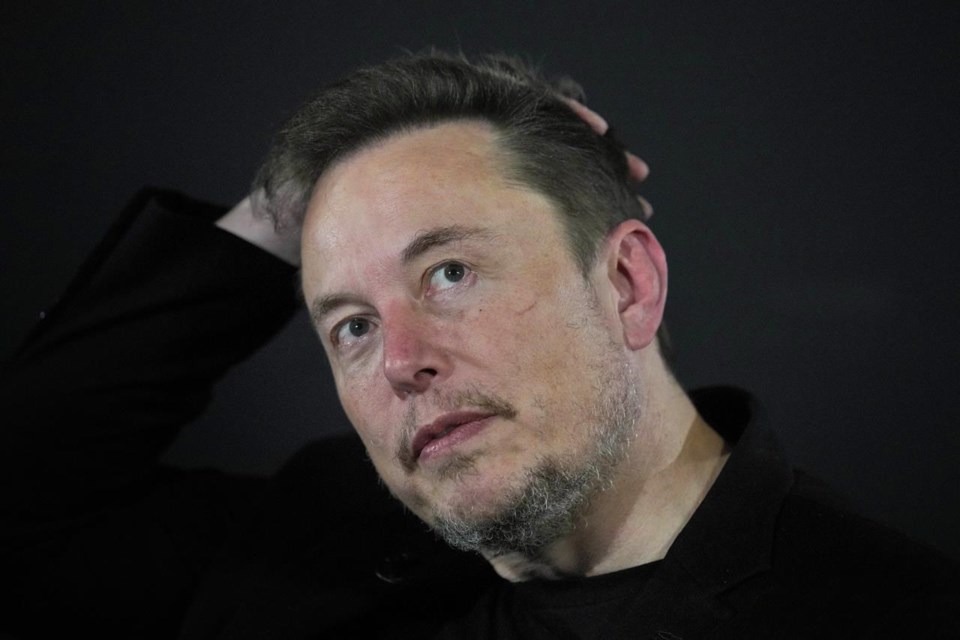NEW YORK (AP) â According to , the first human received an implant from his computer-brain interface company Neuralink over the weekend.
In a Monday , the platform formerly known as Twitter, Musk said that the patient received the implant the day prior and was ârecovering well.â He added that âinitial results show promising neuron spike detection.â
The billionaire, who co-founded Neuralink, did not provide additional details about the patient. When Neuralink announced in September that it would begin recruiting people, the company said it was searching for individuals with quadriplegia due to cervical spinal cord injury or amyotrophic lateral sclerosis, commonly known as ALS or Lou Gehrigâs Disease.
Neuralink is one of many groups working on , efforts aimed at helping treat brain disorders, overcoming brain injuries and other applications. There are more than underway, according to clinicaltrials.gov.
Neuralink reposted Musk's Monday post on X, but did not publish any additional statements acknowledging the human implant. The company did not immediately respond to The Associated Press' requests for comment Tuesday.
Neuralink that the U.S. Food and Drug Administration had approved its âinvestigational device exemption,â which generally allows a sponsor to begin a clinical study âin patients who fit the inclusion criteria,â the FDA said Tuesday. The agency pointed out that it canât confirm or disclose information about a particular study.
Neuralinkâs device is about the size of a large coin and is designed to be implanted in the skull, with ultra-thin wires going directly into the brain. In its September announcement, Neuralink said the wires would be surgically placed in a region of the brain that controls movement intention. The initial goal of the so-called brain computer interface is to give people the ability to control a computer cursor or keyboard using their thoughts alone.
In a separate Monday , Musk said that the first Neuralink product is called âTelepathyâ â which, he said, will enable users to control their phones or computers âjust by thinking.â He added that intial users would be those who have lost use of their limbs.
Itâs unclear how well this device or similar interfaces will ultimately work, or how safe they might be. Clinical trials are designed to collect data on safety and effectiveness.
Laura Cabrera, who researches brain science at Pennsylvania State University, said that even though Neuralink uses an innovative procedure â robotic surgery â to get the device in the brain, no one has implanted it before in humans and much remains unknown.
Brain surgery is ânot a trivial thing,â she said, pointing to significant potential risks such as brain hemorrhage or seizures. âAnd so I think we have to be mindful that even though theyâre using a novel way to implant the device, we just donât know if itâs truly going to be a ⊠safer approach for human patients.â
She pointed out that Neuralinkâs competitors plan to use their devices for medical applications only, but Musk has been outspoken about going beyond medicine. For example, Cabrera said, Musk has talked about implants for the masses that will allow people to record everything that happens to them and access the information when they want â which may raise red flags for some.
âWe know that he has very bold claims,â she said. âPeople not really assessing the strengths and weaknesses of the technology is something that I worry about.â
___
Ungar reported from Columbia, Missouri. Video journalist Christine Nguyen contributed from Houston, Texas.
___
The Associated Press Health and Science Department receives support from the Howard Hughes Medical Instituteâs Science and Educational Media Group. The AP is solely responsible for all content.
Wyatte Grantham-philips And Laura Ungar, The Associated Press



